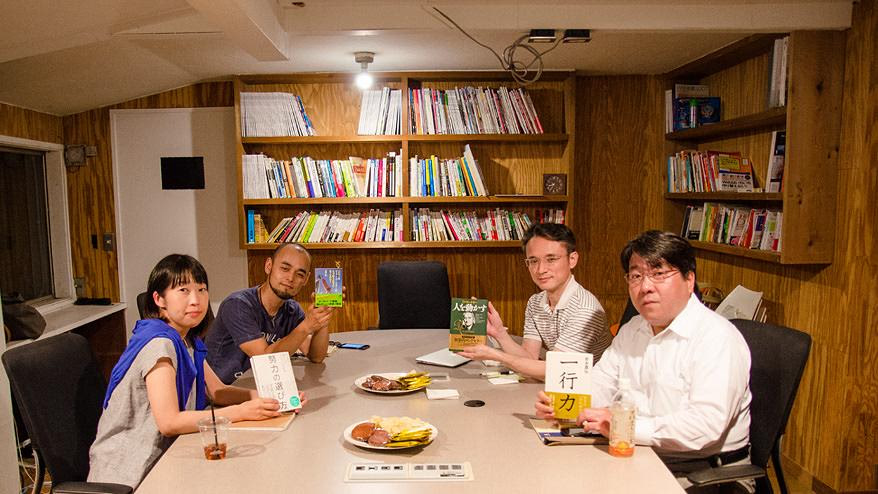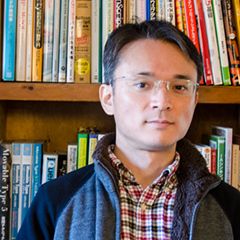I'm Murakami, the library committee chairman.
This month's reading club theme is "Books that are useful for work."
When I want to improve my skills or do something better at my job, I often find clues in books. Different people have different positions and different work problems.
So, what kind of books will be featured this time?
The participants were four people with different titles and positions: myself (quality control department leader and library committee chairman), Matsubara (senior coder and new employee training officer), Kikunaga (telephone master in the marketing department), and Kamii (project manager), who was participating for the first time.
Now, let's start the reading group!

Murakami's selected reading snacks have been praised for being "like something you'd find at grandma's house!"
Presentation Time
After the 40 minutes of reading, each person will have 5 minutes to introduce their book.
- The efforts that will connect you to your future self may be difficult, but they are not painful.
Hiroyuki Inoue (author) "How to Choose Effort" (recommended by Megumi Matsubara) - I think it's important to communicate things in a way that isn't just logical.
Yoshihiro Iwanaga (author) "Ichigyouryoku" (reviewed by Masayuki Kamii) - The idea is a treasure hunt to increase your chances of finding treasure.
Takeshi Morioka (author) "Why did the roller coaster at Universal Studios Japan run backwards?" (reviewed by Shinsuke Kikunaga) - I'm not good at communicating, so I read it.
Dale Carnegie (Author) "How to Win Friends and Influence People"
The efforts that will connect you to your future self may be difficult, but they are not painful.
Hiroyuki Inoue (author) "How to Choose Effort" (recommended by Megumi Matsubara)
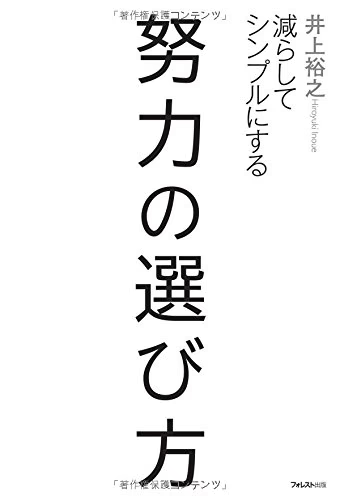
Hiroyuki Inoue (author) "How to Choose Effort" Forest Publishing 2015 ( Amazon )
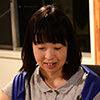 Matsubara
MatsubaraThis book was introduced by Mr. Nagai (Creative Department Head and Vice President) at the morning meeting, and I borrowed it as I thought it would be a perfect match for today's theme.
The author, who holds various titles such as dentist, therapist, and management consultant, introduces how to choose and put into practice his efforts based on his own experience, saying, "I am successful, although I am only halfway there. But it took a lot of effort and a lot of wasted time to get there."
Looking at the table of contents, I started with the item "How to reduce wasted effort" that caught my eye, and by wasted effort he meant "effort that is painful and unsuitable for you," and he said that such effort is unlikely to contribute to your own growth.
On the other hand, effort that does not cause pain is "effort that is the basis for one's own objectives and goals" and helps one to grow, so he says that it would be better to choose stress-free effort and immerse oneself in it.
To achieve this, it is important to first have a goal of what you want to become. However, I don't really have a clear idea of what I want to become, so I think people like me should start by making efforts to "satisfy small desires."
Apparently, there are different levels of needs (Maslow's hierarchy of needs), and if you start by satisfying the smallest level of "just being alive = the need for survival," you will begin to desire larger needs.
First, set a small goal, achieve it to satisfy your desire, and then set a bigger goal. With that goal in mind, I thought it would be good to choose a stress-free effort and immerse myself in it.
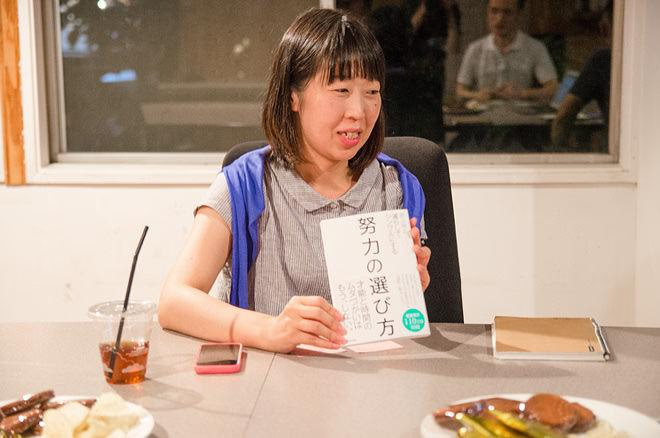
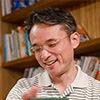 Murakami
MurakamiWhat does stress-free effort mean to you, Mr. Matsubara?
 Matsubara
MatsubaraHmm, that's true. I can't think of anything right now, but when it comes to work, I don't think I find it particularly difficult to create easy-to-understand explanatory materials.
 Kikunaga
KikunagaIt's probably painful for me (laughs), so I guess that's what suits Matsubara-san best.
 Murakami
MurakamiIs there a difference between suffering and pain? What is the difference?
 Matsubara
MatsubaraI think it probably comes down to whether it's necessary for your future goals. If doing it helps you imagine a brighter future, then it shouldn't be painful.
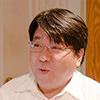 Kamii
KamiiI'm an adult in terms of age (laughs), so I try to do things that fit my abilities rather than whether they fit me or not. If there's even a slight difference between who I want to be and what I'm suited to, I feel unhappy and stressed. If it's completely different, I can give up, but I think it's the most painful when it's just a little bit different.
I thought that maybe it's about working hard from the ground up, creating these things one by one.
 Matsubara
MatsubaraIt's true that it did say things like not being too greedy and just doing one thing at a time.
I think it's important to communicate things in a way that isn't just logical.
Yoshihiro Iwanaga (author) "Ichigyouryoku" (reviewed by Masayuki Kamii)
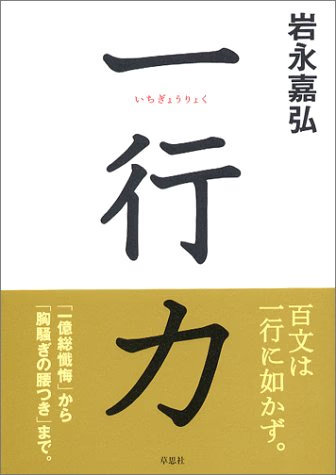
Yoshihiro Iwanaga (author) “Ikgyoriki” Soshisha 2004 ( Amazon )
 Kamii
KamiiI've been working in project management and client relations for many years, and I'm often told that my explanations are long-winded and tedious (laughs).
Even at times I thought to myself, "Oh, this is getting repetitive again," so I chose this book because I was attracted to the title, "Ichigōryoku."This book was written by a copywriter, but to put it simply, it mainly consists of case studies and doesn't contain much of what I was hoping for.
However, there is an interesting example at the beginning. It's about the slogans that were created in Japan and the US to boost morale during the Pacific War, so it's a bit strange... Comparing "One million hearts, one fireball" and "Devil America and Britain," which were created by Isao Hanayama (modeled after Yasuji Hanamori), played by Toshiaki Karasawa in "Totonee-chan," with the American slogan "Remember Perl Harbor," the author says that the latter has a stronger power to motivate people.
The Japanese phrase "Devilish America and Britain" concludes that each party should feel the same way, while the American phrase "Remember Perl Harbor" is a keyword that evokes the feelings and emotions that arose in each individual in response to Japan's attack.
In other words, he is saying that even if you logically explain why something should be done, the crowd will not be moved.When I start a project at work, I find it difficult to communicate the project's direction to people in different positions.
It's fine to say, "Therefore, this is how it should be," based on logic, but I was wondering if there was something that could supplement that, even just a little. I thought that "Remember Perl Harbor" had that perspective.Being able to move in the same direction despite different paths and triggers is different from moving in the same direction using the same logic. It made me think that non-logical aspects are also important.
Well, when it comes to work, I think it's no problem if I work with people who are good at that kind of thing and we can complement each other (laughs).
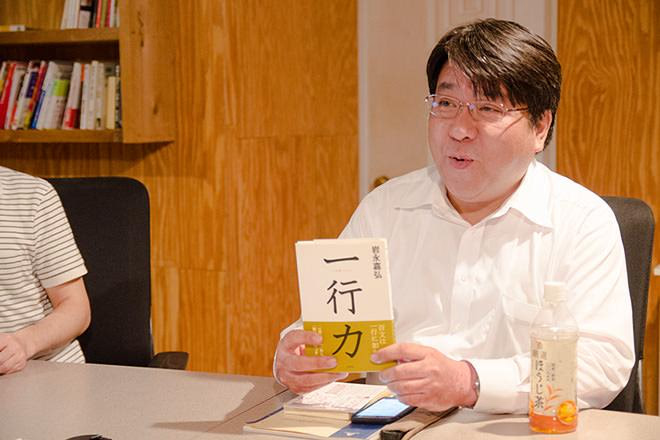
 Murakami
MurakamiI'm glad there was an interesting example at the beginning.
 Kamii
KamiiI'm sure if it hadn't been like this at the beginning I would have quit sooner.
 Murakami
Murakami(Taking out a book from the shelf) This book might be good too, " How to Create a Key Message ." It gives a logical explanation of how to create a message.
 Kamii
KamiiThis is a bit off topic, but in the business world, there are many situations where you send a message one-sidedly via email or chat and say, "Didn't you say this?", but I don't think that's good. What's important is whether the other person received what you wanted to convey. It's like a "delivery-based" approach.
Even when you are explaining something as an expert, the other person may be an expert in a different field, so it is important to understand what they are saying, but it is also important to be aware of how to communicate your expertise to people without that expertise so that they can understand it.
I think that's what project managers and directors have to do.
The idea is a treasure hunt to increase your chances of finding treasure.
Takeshi Morioka (author) "Why did the roller coaster at Universal Studios Japan run backwards?" (Presenter: Shinsuke Kikunaga)
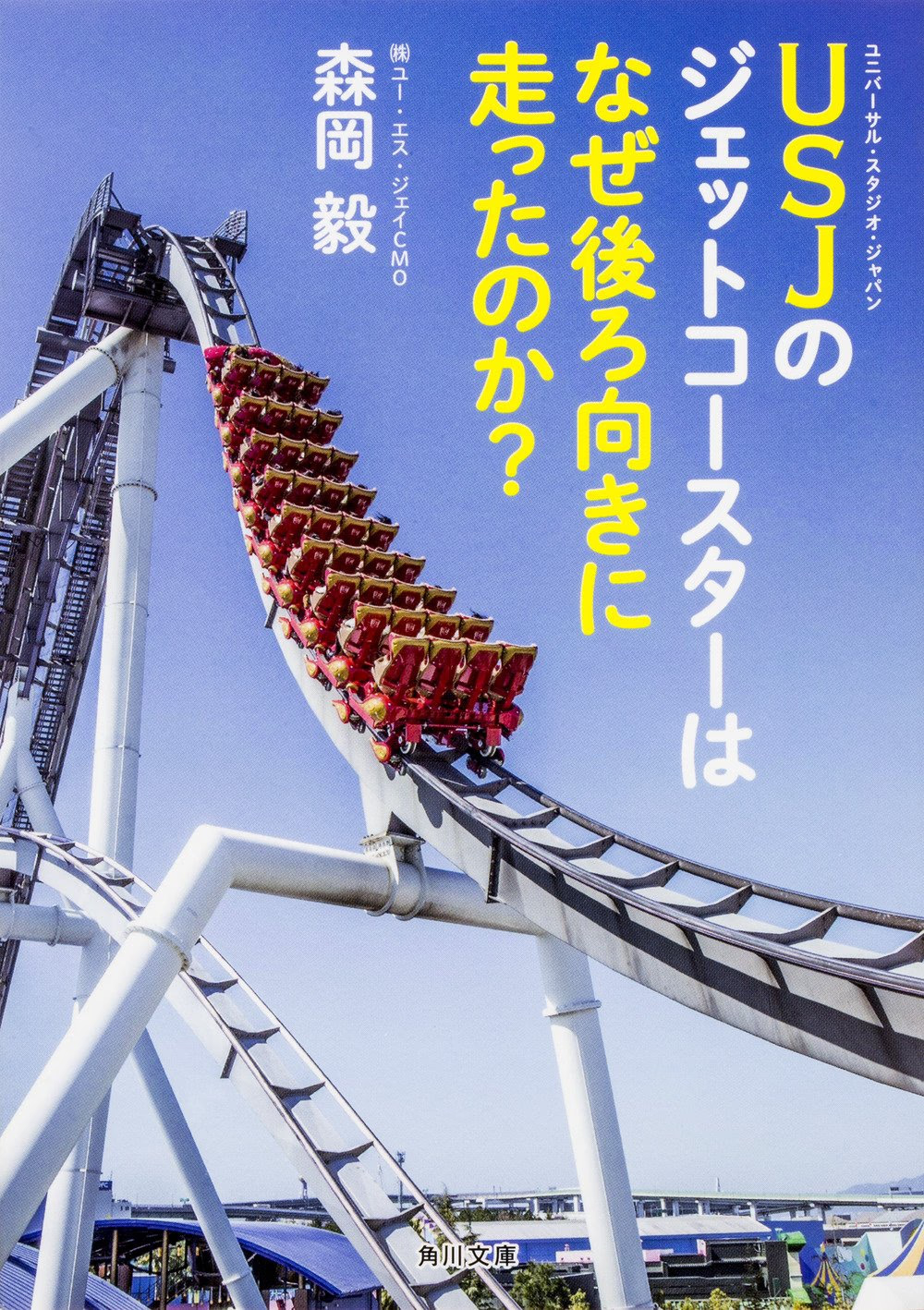
Takeshi Morioka (author) "Why did the roller coaster at Universal Studios Japan run backwards?" (Kadokawa Bunko) Kadokawa Shoten 2016 ( Amazon )
 Kikunaga
KikunagaThis book was written by Takeshi Morioka, the CMO (Chief Marketing Officer) who achieved a V-shaped recovery in sales at Universal Studios Japan. It talks in detail about how he achieved this V-shaped recovery, and his methods and ideas.
I work in the marketing department, so I simply wanted to study marketing, and Universal Studios Japan in Osaka feels far away from the Kanto region, so I thought I'd read it.
In conclusion, I decided to go to USJ after reading this book. So in that sense, this book may have been a successful marketing strategy (laughs).
It says that in order to increase sales, it is important to "increase the probability" of digging up the "treasure" of "ideas that will achieve your goals." The method for doing so is called a "strategic framework," which involves first clarifying the goal, thoroughly thinking about the necessary conditions for ideas to achieve that goal, and finally thinking about specific ideas.
The book goes into detail about how the idea for the "backwards roller coaster" that appears in the book's title came about, but the other attractions also feature various innovative ideas for customer satisfaction, which made me want to go to Universal Studios Japan to learn more.
Also, although we may be in different fields, Mr. Hayashi (CEO) is also a person with a track record in marketing, and we share the same concepts. I was able to deeply understand what Mr. Hayashi taught me from a different angle. I felt that the basic ideas of marketing are the same.
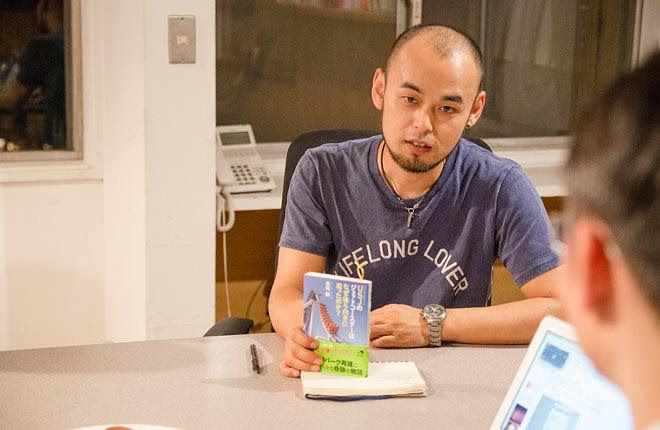
 Murakami
MurakamiWhen I first saw the title, I thought it was about an accident involving wrong-way driving, but it was actually about marketing.
 Kikunaga
KikunagaAh, I see (laughs). Apparently the action that scares people the most is falling on the back of their head, so the new sensation made it a hit.
 Murakami
MurakamiIs that why you decided to run it backwards?
 Kikunaga
KikunagaActually, it was done out of necessity. The year the roller coaster was built was a difficult one, with the 30th anniversary of Tokyo Disneyland and the number of visitors waiting for the Harry Potter movie to open the following year. On top of that, they didn't have enough budget due to the upfront investment in Harry Potter. After thinking hard about how to overcome this crisis, they came up with the idea of running an existing roller coaster backwards.
 Murakami
MurakamiI used to live in the Kansai region, but I had never been to Universal Studios Japan. When I hear stories like that, I feel like I missed out.
 Kikunaga
KikunagaI'm sure it will be fun. I'll report back when I get there.
I'm not good at communicating, so I read it.
Dale Carnegie (author) "How to Win Friends and Influence People" (reviewed by Isamu Murakami)
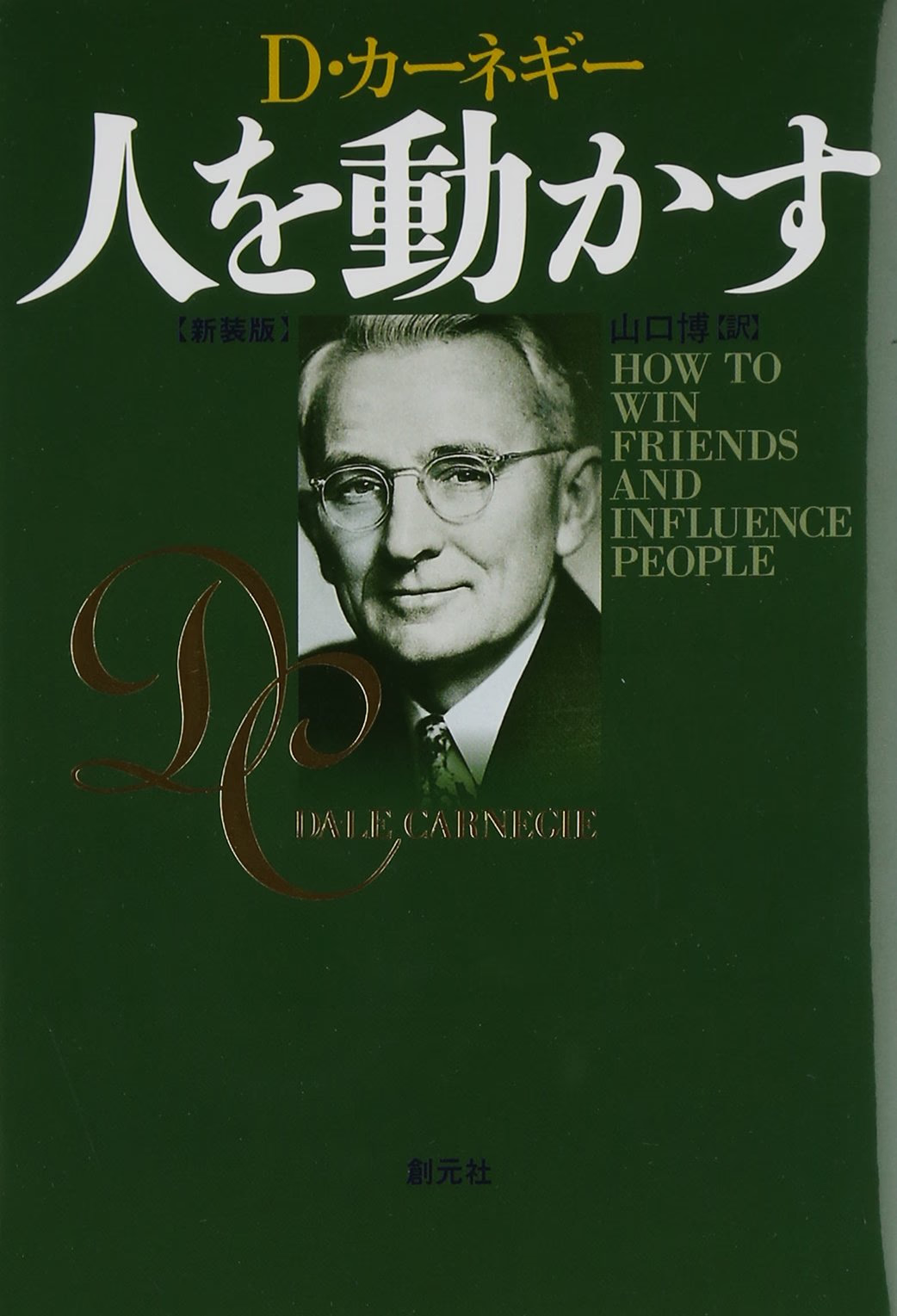
Dale Carnegie (Author), Dale Carnegie (Author), Hiroshi Yamaguchi (Author) "How to Win Friends and Influence People" Sogensha 1999 ( Amazon )
 Murakami
MurakamiTatsuta introduced it at the morning assembly, and as I'm not very good at communicating, I decided to read it because I wanted to learn more.
Without any prior knowledge, I assumed it would be difficult to understand, but that wasn't the case. It cited actual events and the author's own experiences to explain what is best, and I was surprised to find that it was very easy to read.
I am currently reading the first part, "Three Principles for Motivating People," and I would like to introduce that part to you.
The first one is "Don't criticize or blame. Don't complain."
After explaining with concrete examples that even the most evil people believe that they are right, he said that this goes without saying for ordinary people who are not evil. In other words, no matter how much you blame someone, it is difficult to make them change, and you will only just justify yourself and incur resentment, so instead of criticizing, try to understand the other person and find out why they are the way they are.
The second is to "give an honest and frank evaluation."
The only way to motivate people is to give them what they want, but what do people want? Health, sleep, money... and finally, he lists a "sense of self-importance," which he says is extremely important. He says that by satisfying this, you can win people's hearts.
However, this does not mean that you should just flatter others, but that you should thank and value them from your heart. I myself have not been able to properly express my gratitude or tell those around me that I care about them.
I am still trying to figure out how to go about this in practice, but I would like to put it into practice in my daily communications.The third thing is...ah, time.
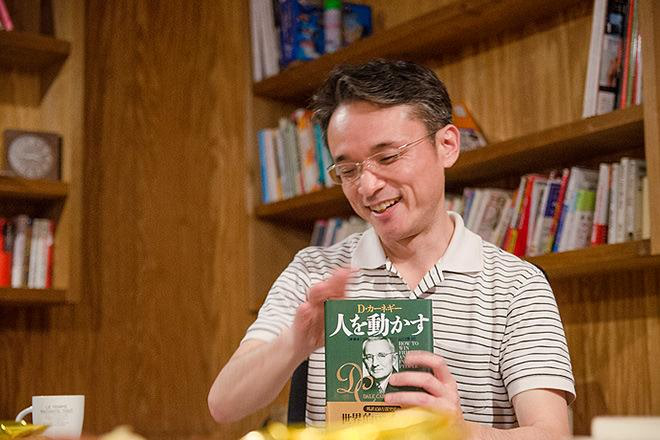
 Kikunaga
KikunagaI'm curious about the third one... (laughs)
 Murakami
Murakami"It arouses a strong desire."
For example, if you don't want your child to smoke, instead of preaching or forcing your wishes on them, explain from their point of view that if they smoke, they won't be able to become a baseball player. A "strong desire" is a self-assertion, in this case "I want to be a baseball player." Because it matches that, the child will stop smoking of their own volition.
 Kikunaga
KikunagaYou said you're not good at communication, but what do you find bothering about it?
 Murakami
MurakamiAs a team leader, I think there are many areas where I am lacking. I need to re-study the basics, such as being able to properly express my thoughts to team members on a daily basis, and negotiating with people outside the team, or how to communicate in a way that will get people to take action.
When I read books I think "I see!", but when it comes to my own situation it's difficult... it's a daily exercise.
summary
The presentations were directly related to the issues facing each of the students' work. The Q&A session after the presentations seemed to be more lively than usual.
It also provided an opportunity for participants to learn about what others are worried about, how they have overcome them, and how they are dealing with these issues, which appears to have provided both parties with new discoveries and hints for solving their own problems.
The next episode will be a special end-of-summer edition of "Izakaya Manga Nights" (to be released in September).
See you next month!
